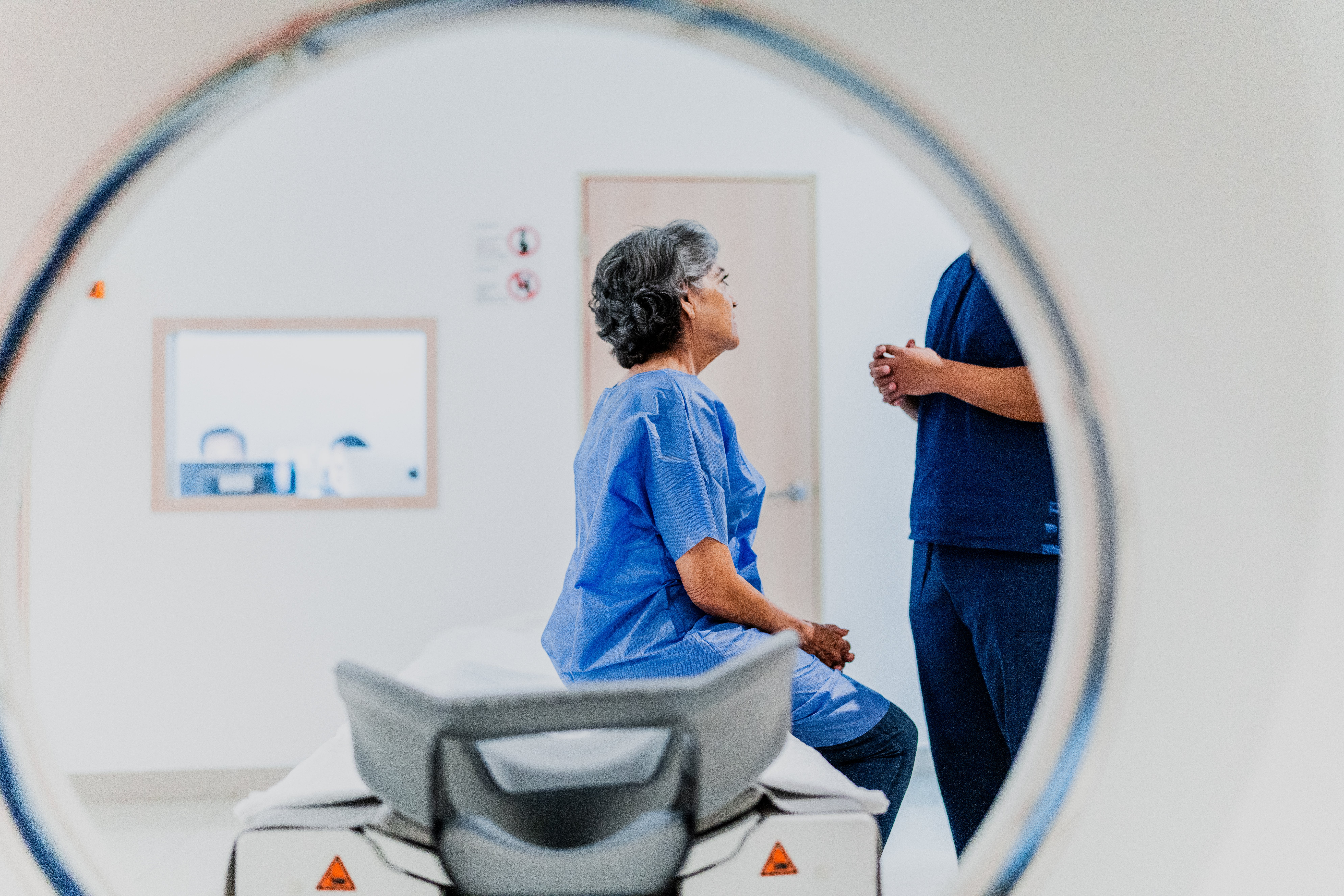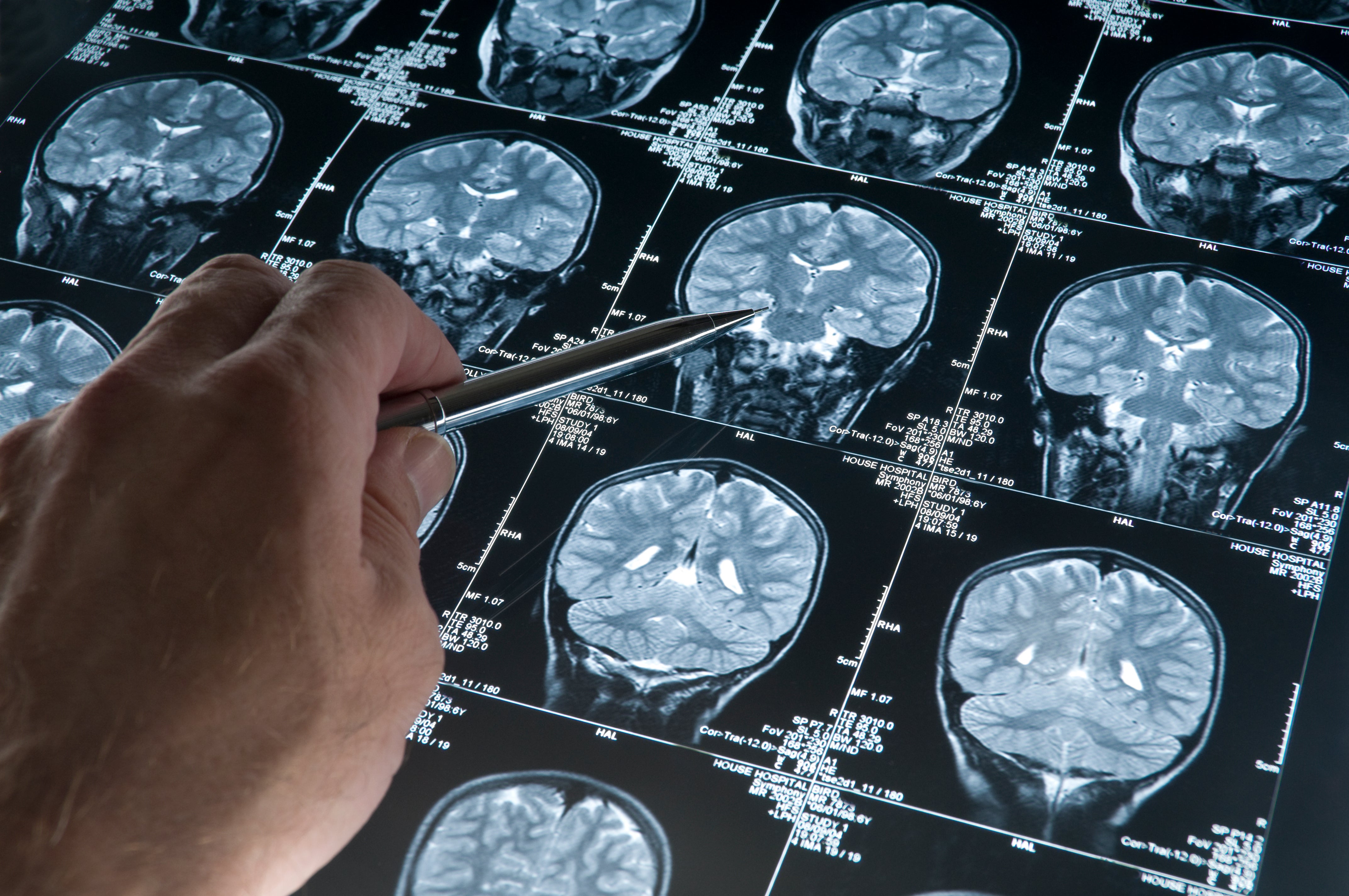I recently asked myself if I’ll still have a healthy brain as I get older. I hold a professorship at a neurology department. Nevertheless, it is difficult for me to judge if a particular brain, including my own, suffers from early neurodegeneration.
My new study, however, shows that part of your brain increases in size with age rather than degenerating.
The reason it’s so hard to measure neurodegeneration is because of how complicated it is to measure small structures in our brain.
Modern neuroimaging technology allows us to detect a brain tumour or to identify an epileptic lesion. These abnormalities are several millimetres in size and can be depicted by a magnetic resonance imaging (MRI) scanner, which operates at around 30,000-60,000 times stronger than the natural magnetic field of the Earth. The problem is that human thinking and perception operate at an even smaller scale.
Our thinking and perception happens in the neocortex. This outer part of our brain consists of six layers. When you feel touch to your body, layer four of your sensory cortex gets activated. This layer is the width of a grain of sand – much smaller than what MRI scanners at hospitals can usually depict. When you modulate your body sensation, for example by trying to read this text rather than feeling the pain from your bad back, layers five and six of your sensory cortex get activated – which are even smaller than layer four.

For my study, published in the journal Nature Neuroscience, I had access to a 7 Tesla MRI scanner, which offers five times better image resolution than standard MRI scanners. It makes snapshots of the fine-scale brain networks during perception and thought visible.
Using a 7 Tesla scanner, my team and I investigated the sensory cortex in healthy younger adults (around 25 years old) and healthy older adults (around 65 years old) to better understand brain ageing. We found that only layers five and six, which modulate body perception, showed signs of age-related degeneration.
Layer four, needed to feel touch to your body, was enlarged in healthy older adults in my study. We also did a comparative study with mice. We found similar results in the older mice, in that they also had a more pronounced layer four than the younger mice.
However, evidence from our study of mice, which included a third group of very old mice, showed this part of the brain may degenerate in more advanced old age.
Current theories assume our brain gets smaller as we grow older. But my team’s findings contradict these theories in part. It is the first evidence that some parts of the brain get bigger with age in normal older adults.

Older adults with a thicker layer four would be expected to be more sensitive to touch and pain, and (due to the reduced deep layers) have difficulties modulating such sensations.
To understand this effect better, we studied a middle-aged patient who was born without one arm. This patient had a smaller layer four. This suggests their brain received fewer impulses in comparison to a person with two arms and therefore developed less mass in layer four. Parts of the brain that are used more develop more synapses, hence more mass.
Rather than systematically degenerating, older adults’ brains seem to preserve what they use, at least in part. Brain ageing may be compared with a complex machinery in which some often-used parts are well-oiled, while others, less frequently used, get roasted. From that perspective, brain ageing is individual, shaped by our lifestyle, including our sensory experiences, reading habits, and cognitive challenges that we take on in everyday life.
In addition, it shows that the brains of healthy older adults preserve their capacity to stay in tune with their surroundings.
A lifetime of experiences
There is another interesting aspect about the results. The pattern of brain changes that we found in older adults – a stronger sensory processing region and a reduced modulatory region – shows similarities to neurodivergent disorders such as the autism spectrum disorder or attention deficit hyperactivity disorder.
Neurodivergent disorders are characterised by enhanced sensory sensitivity and reduced filtering abilities, leading to problems in concentration and cognitive flexibility.
Do our findings indicate that ageing drives the brain in the direction of neurodivergent disorders? Older adults brains have been formed by a lifetime of experiences, whereas neurodivergent people are born with these brain patterns. So it would be hard to know what other effects building brain mass with age might have.
Yet, our findings give us some clues about why older adults sometimes have difficulties adapting to new sensory environments. In such situations, for example, being confronted with a new technical device or visiting a new city, the reduced modulatory abilities of layers five and six may become particularly evident, and may increase the likelihood for disorientation or confusion. It may also explain reduced abilities for multitasking with age, such as using a mobile phone while walking. Sensory information needs to be modulated to avoid interference when you’re doing more than one thing.
Both the middle and the deep layers had more myelin, a fatty protective layer that is crucial for nerve function and communication, in the older mice as well as humans. This suggests that in people over the age of 65, there is a compensatory mechanism for the loss of modulatory function. This effect seemed to be breaking down in the very old mice, though.
Our results provide evidence for the power of a person’s lifestyle for shaping the ageing brain.
Esther Kuehn is a Professor of Neuroscience at the University of Tübingen.
This article is republished from The Conversation under a Creative Commons license. Read the original article.



